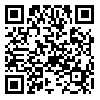Volume 12, Issue 49 (3-2019)
etiadpajohi 2019, 12(49): 189-208 |
Back to browse issues page
Download citation:
BibTeX | RIS | EndNote | Medlars | ProCite | Reference Manager | RefWorks
Send citation to:



BibTeX | RIS | EndNote | Medlars | ProCite | Reference Manager | RefWorks
Send citation to:
Azimi M. Effectiveness of Process Emotion Regulation Strategies in Cognitive Emotion Regulation Strategies and General Health Problems among Adolescent Girls with Addicted Parents. etiadpajohi 2019; 12 (49) :189-208
URL: http://etiadpajohi.ir/article-1-1636-en.html
URL: http://etiadpajohi.ir/article-1-1636-en.html
University of Cultural Sciences, Amir Kabir University
Abstract: (4618 Views)
Objective: The aim of this study was to investigate the effectiveness of process emotion regulation strategies in cognitive emotion regulation strategies and general health problems among adolescent girls with addicted parents. Method: A quasi-experimental research design along with pre-test/post-test and control group was employed for the conduct of this study. The number of 30 female high school students with addicted parents in municipal district three of Karaj was selected via convenience sampling method. These sample units had obtained scores higher than the cut-off one in General Health Questionnaire (Goldberg, & Hillier) and were randomly assigned to two experimental and control groups. The experimental group received 10 training sessions of process emotion regulation strategies. Results: The results of this study showed that the training of process emotion regulation strategies has brought about changes in seven subscales of cognitive emotion regulation strategies (self-blame, acceptance, rumination, positive refocus, planning, observing, and other-blame) and has reduced general health problems (depression, anxiety, physical difficulties, and total health problems) in adolescent girls. Conclusion: Process emotion regulation strategies is one of the effective interventions in cognitive emotion regulation strategies and reduction of health problems.
Keywords: process emotion regulation strategies, cognitive emotion regulation strategies, general health, addicted parents
Type of Study: Research |
Subject:
Special
Received: 2018/01/11 | Accepted: 2019/03/16 | Published: 2019/04/11
Received: 2018/01/11 | Accepted: 2019/03/16 | Published: 2019/04/11
| Rights and permissions | |
 |
This work is licensed under a Creative Commons Attribution-NonCommercial 4.0 International License. |





